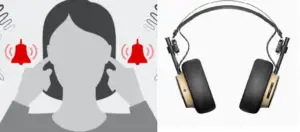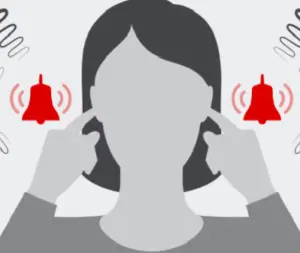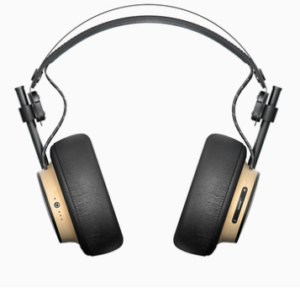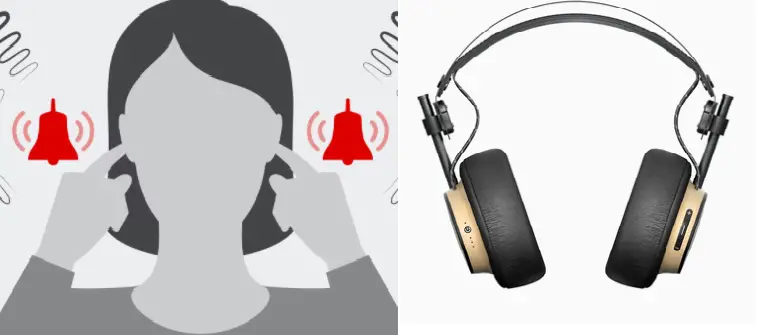The general term of noise cancellation refers to several ways to reduce the effect of unwanted noise on the sound quality of headphones and headsets.
Many Manufacturers of headphones for people with tinnitus use different noise reduction technologies – active (with static and adaptive filters), passive, and hybrid.

The variety of technologies and terms makes it difficult for users with tinnitus to choose the best headsets.
The purpose of this article is to tell you about the basics of tinnitus and of noise cancellation and compare different methods.
Table of Contents
What should you know about Tinnitus and Noise Cancellation Headphones?
One the most popular method of relieving tinnitus sufferers is noise masking what noise cancellation headphones do.
Many people who are suffering from tinnitus use noise cancellation headphones to mask the noise when falling asleep, at night when waking up, and some are forced to use it even during the day to hide subjective noise from the subconscious.
In this regard, the question often arises:
Does the use of Noise Cancellation Headphones harm their owner?
Don’t noise cancellation headphones make tinnitus even worse?
Moreover, the Internet is full of messages that the use of noise cancellation headphones kills your hearing and that you can use them for no more than 30 minutes a day. This opinion is often broadcast by doctors, and then by the noise makers themselves, retelling it to each other through social networks and forums. Let’s try to understand this situation properly…
For those who are lazy to read all the review, I will give the answer right away:
The competent use of noise cancellation headphones does not harm the hearing organs.
The work principle of Noise Cancelling Headphones for Tinnitus Suffers?
The general term of noise cancellation refers to several ways to reduce the effect of unwanted noise on the sound quality of headphones and headsets.
Manufacturers of these headphones use different noise reduction technologies – active (with static and adaptive filters), passive, and hybrid. The variety of technologies and terms makes it difficult for users to choose headsets.
Let’s understand the basics of noise reduction and compare different methods.
Active Noise Cancellation (ANC) is a process that uses a microphone to monitor and filter ambient noise in headphones.
Active noise cancellation is achieved by using analog or digital filters and differs in implementation types – closed-loop, open-loop, and hybrid noise cancellation.
High quality active noise canceling technology significantly improves the acoustic performance of headphones and headsets with good passive noise canceling. But it cannot compensate for design flaws or poor material of the ear cushions, if the manufacturer decided to save on them.
Passive noise cancellation is what the construction and materials of earbuds and headsets are all about, the silicone earbuds of the vacuum headphones or the soft ear cushions on the on-ear models.
Basically, it is the level of isolation from external noise that a device can provide on its own, without considering electronic components and algorithms. Simply saying, this is how well the earbuds do the earplug function.

Total noise cancellation (the cumulative effect of noise cancellation ) is the sum of passive and active noise cancellation.
This set is determined by the features of the electronic components of active noise cancellation, as well as the design and material of the ear pads (passive noise cancellation).
Headphones of Active noise canceling types
As mentioned, there are three types of active noise canceling: open loop, closed loop, and hybrid (a combination of the first two).
Open-loop ANC uses the main microphone to track external noise, then converts it to anti-noise and mixes it with the playback audio to provide noise cancellation.
This process is rather complicated, since the phase inversion of complex signals must take into account the delays in the passage of noise and calculate the noise protection signal so that it arrives at the user simultaneously with the noise.
Implementing ANC with feedback presents some challenges as it is difficult to design a system that will always remain stable due to the need to fit the size of the headphones and the tendency of the feedback loop to drive the system to excitement.
Feedback requires a microphone on the outside of the earbuds to track the sound coming to the user. By comparing the sound coming to the user with the audio source, the feedback algorithm identifies the noise and creates protections.
The closed-loop system is mainly effective for suppressing low frequencies. The reason is that there is a possibility of suppression of a part of the useful signal, which can be recognized as the noise. This results in coloration or distortion of the original signal.
Possible disadvantages of active noise cancellation headphones for people with tinnitus?
Of course, the noise suppression system has some advantages over conventional passive sound insulation, but there are also disadvantages – they are personal intolerance. Some people (5-7%) may experience discomfort: headache, dizziness.
In order to avoid a sudden headache and a nauseous state, you need to listen to noise canceling headphones for 2-3 hours and if everything is fine, then you can safely purchase them yourself.
Although, of course, such a chance to test the noise reduction of headphones does not often fall out.
Headphones of Hybrid noise cancellation
The hybrid ANC solution combines the best of the techniques listed above. It uses an external main microphone to track ambient noise and an internal microphone to monitor for error and track what the user hears in addition to the audio being played.
When both methods are used at the same time, noise cancellation is as effective as possible.
Headphones of Static and adaptive active noise canceling filters
Until now, manufacturers have only used static, non-tunable active noise suppression filters. This universal method assumes that one filter works for all sound reproduction conditions.
ANC today uses adaptive or tunable filters that adapt to a person’s hearing or headphone configuration and adapt to changing acoustic environments. This improves the noise reduction function for a wider range of users.
Adaptation is not just noise filtering. If you analyze the ambient noise, you can see a lot of its varieties, for example, the sound of engines in the cabin of an aircraft (low frequencies), conversations in a cafe (medium frequencies), music at a concert (very loud sound) and noise in the library (very quiet sound).
In any given situation, the adaptive filter works to maximize the overall noise reduction performance. For example, in the cabin of an airplane, a filter suppresses lower frequencies, while in a cafe – mids, etc.
In reality, the adaptation process is more complicated, but our description gives a general idea of the capabilities of adaptive filters.
Side Effects of Tinnitus and Noise Cancellation Headphones?
If you want to get rid of Tinnitus you must remember that Tinnitus is not a final pathology, and in most cases, a dynamic decrease in hearing acuity begins with it.
Bad headphones, loud music, bad habits, constant stress, reduced immunity can accelerate tinnitus.
If you are suffering from tinnitus choose noise cancellation headphones properly :
Ear physiology provides protection against episodic loud sounds only. If there is a prolonged exposure to high decibels, then hearing will be reduced.
After episodic exposure to high decibels on the hairs covering the cochlea (the spiral organ of the inner ear), they are quite easily restored, and the hearing loss is temporary and insignificant.
There are special muscles in the ear that, with strong sound vibrations, tense and limit the movement of the auditory ossicles. Thus, they protect especially sensitive hearing cells. But these muscle fibers cannot withstand the loud sound for a long time.
If they are exposed to more than 60 minutes, then their defense mechanism is significantly weakened. Therefore, listening to loud music for many hours a day will inevitably reduce hearing acuity.
With the systematic and prolonged exposure to noise on the hairs covering the cochlea, their more serious damage occurs, and their regeneration becomes impossible.
Otolaryngologists and audiologists claim that geriatric hearing changes start at the age of 30. But prolonged exposure to high decibels guarantees a sad prognosis even at an earlier age.
Patients develop subjective tinnitus when exposed to prolonged and loud noises from headphones. This is a specific ringing or obsessive tinnitus (the sound resembles the ringing of a bell), heard only by this patient. Often with such a complaint to otolaryngologists, patients of 30-40 years old apply.
Common Types of Noise cancellation Headphones for Tinnitus?

Most wireless active noise canceling headphones are over-ear and over-ear models. There are fewer noise cancelling vacuum TWS headphones with ANC, because they provide good sound isolation even without technical tweaks. Noisy inserts – count on your fingers.
Bone conduction headphones are the most versatile form factor. They are convenient for almost everyone.
TWS earbuds with active noise canceling or “plugs”, for example, can often get tired, chafing, and so on. But full-size soundproofing is not enough for comfortable listening in urban environments. Therefore, “large” headphones with active noise canceling are always popular.
Conclusion
Tinnitus can appear in everyone and take it by surprise anytime and anywhere – during a phone call, presentation at work, or even if you are just sitting in silence. You hear noise that no one else hears but you, and it has no specific source.
It is important to know that while others may not experience the same discomfort, you are not alone. You may have tinnitus, one of the most common disorders that regularly affects 10 to 15% of the world’s population.
So, One the most popular method of relieving tinnitus sufferers is noise masking what noise cancellation headphones do.
Many people who are suffering from tinnitus use noise cancellation headphones to mask the noise when falling asleep, at night when waking up, and some are forced to use it even during the day to hide subjective noise from the subconscious.
Some people (5-7%) may experience discomfort: headache, dizziness.
In order to avoid a sudden headache and a nauseous state, you need to listen to noise canceling headphones for 2-3 hours and if everything is OK, then you can safely purchase them yourself.
Although, of course, such a chance to test the noise reduction of headphones does not often fall out.
FAQ
Can your noise cancel tinnitus?
Yes, with the help of noise canceling headphones. One the most popular method of relieving tinnitus sufferers is noise masking what noise cancellation headphones do.
Are noise cancelling headphones safe for tinnitus?
Yes, noise cancelling headphones are safe for tinnitus.
One the most popular method of relieving tinnitus sufferers is noise masking what noise cancellation headphones do.
Many people who are suffering from tinnitus use noise cancellation headphones to mask the noise when falling asleep, at night when waking up, and some are forced to use it even during the day to hide subjective noise from the subconscious.
Can noise cancelling headphones cause tinnitus?
No, never. The headphones reduce tinnitus. Manufacturers of these headphones use different noise reduction technologies – active (with static and adaptive filters), passive, and hybrid.
The variety of technologies and terms makes it difficult for users to have tinnitus.
Are noise cancelling headphones good for me?
People are different, so in order to avoid a sudden headache and a nauseous state, you need to listen to noise cancelling headphones for 2-3 hours and if everything is OK, then you can safely purchase them yourself.
Although, of course, such a chance to test the noise reduction of headphones does not often fall out.
Can noise cancelling headphones treat tinnitus?
Noise cancelling headphones can help you in treating but not solving this problem.
These patients with tinnitus should undergo a thorough audiologic examination to determine the presence, degree, and type of hearing loss.
